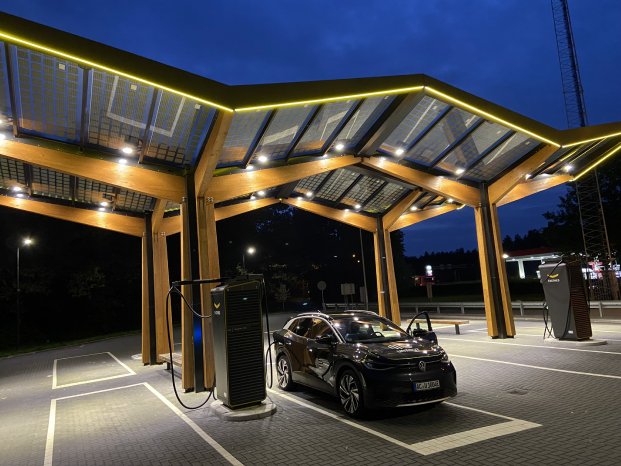For the evaluation of the charging station operators, test drives took place between the end of July and the end of August 2023 – there were some retests at the beginning of September. The test drivers covered around 900 kilometres in Belgium and visited 25 charging stations, around 1,100 kilometres in the Netherlands with 30 charging stations and around 200 kilometres in Luxembourg with ten charging stations. The test drivers filled out an extensive evaluation form at each charging stop – regarding the charging station, the actual charging process as well as test calls to the providers' hotlines. In Belgium, the five CPOs Allego, Fastned, Ionity, Powerland and Total Energies were tested; in the Netherlands, the six CPOs BP Pulse, E-Flux, Fastned, Ionity, Shell Recharge and Total Energies were tested; and in Luxembourg, the CPOs Esso and Chargy.
"We are pleased to see that our criticism from previous years has been taken seriously and has led to improvements. Congratulations to Ionity, Fastned and Esso for their first places. This year’s results also reflect the growing commitment of the mineral oil companies. If they are equipping more and more filling stations with fast charging points, also in the cities, this is good news for e-car drivers – especially for those without their own Wallbox who want to quickly fill up their vehicle before a longer tour," says connect author Hannes Rügheimer.
In the CPO assessment, Ionity wins in Belgium with 849 points out of 1,000 Points, Fastned comes in second place with 813 points – both providers receive the grade "good" – Total Energies comes in third place with 776 points. In the Netherlands, Fastned comes first with 795 points, followed by Shell Recharge in second place with 779 points – both providers also receive the grade "good", Ionity comes third with 729 points. In Luxembourg, Esso comes first with 673 points and receives the grade "satisfactory", Chargy follows in second place with 651 points.
The test method
For the evaluation, the test teams made trips through Belgium, the Netherlands and Luxembourg. Depending on the size of the country, they visited four or five stations per CPO. Registration and billing took place via charging cards and apps on the one hand, and via the ad-hoc payment options supported by the CPO on the other. During the charging process, the teams created extensive protocols about the conditions on site, the course of the charging process and any errors that occurred. They also contacted the providers’ hotlines to test the service quality. A special evaluation key was developed for the connect Ladenetztest, which was also further developed this year. The weighting of the individual test points was adapted to everyday practice in e-mobility. A more detailed description of the methodology can be found at www.connect.de/ladenetztest.

